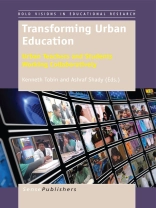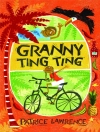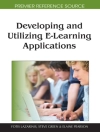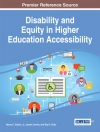Transformations in Urban Education: Urban Teachers and Students Working Collaboratively addresses pressing problems in urban education, contextualized in research in New York City and nearby school districts on the Northeast Coast of the United States. The schools and institutions involved in empirical studies range from elementary through college and include public and private schools, alternative schools for dropouts, and museums. Difference is regarded as a resource for learning and equity issues are examined in terms of race, ethnicity, language proficiency, designation as special education, and gender. The contexts for research on teaching and learning involve science, mathematics, uses of technology, literacy, and writing comic books. A dual focus addresses research on teaching and learning, and learning to teach in urban schools. Collaborative activities addressed explicitly are teachers and students enacting roles of researchers in their own classrooms, cogenerative dialogues as activities to allow teachers and students to learn about one another’s cultures and express their perspectives on their experienced realities and negotiate shared recommendations for changes to enacted curricula. Coteaching is also examined as a means of learning to teach, teaching and learning, and undertaking research. The scholarship presented in the constituent chapters is diverse, reflecting multi-logicality within sociocultural frameworks that include cultural sociology, cultural historical activity theory, prosody, sense of place, and hermeneutic phenomenology. Methodologies employed in the research include narratology, interpretive, reflexive, and authentic inquiry, and multi-level inquiries of video resources combined with interpretive analyses of social artifacts selected from learning environments. This edited volume provides insights into research of places in which social life is enacted as if there were no research being undertaken. The research was intended toimprove practice. Teachers and learners, as research participants, were primarily concerned with teaching and learning and, as a consequence, as we learned from research participants were made aware of what we learned—the purpose being to improve learning environments. Accordingly, research designs are contingent on what happens and emergent in that what we learned changed what happened and expanded possibilities to research and learn about transformation through heightening participants’ awareness about possibilities for change and developing interventions to improve learning.
قائمة المحتويات
Foreword; Becoming a Science Teacher; Globalization, Immigration and Identity Formation|Reformation; Math, Science Whizzes: Second–Generation Asian Indian Students in the Context of Achievement, Schooling, Positive Stereotyping; Singing a Different Tune: An Auto/Ethnographic Journey into and Out of the Land of Educational Technology; Unraveling Technology Use in Urban Schools; Performatory Social Therapeutic Approaches to Internet-based Collaboration in Schools; Comic Books, Technology, and Dialogue: Alternative Tools for Measuring Achievement in a Special Education Community; Stigma, LD, and Privileged Habitus in an Urban Setting; Misinformation and Its Discontents: Critical Pedagogy and the Challenges of Islamophobia; Enactment of Chemistry Knowledge by a High School Student at a Summer Program; Twenty Questions About Cogenerative Dialogues; Twenty Questions About Coteaching; Emotions as Mediators of Science Education in an Urban High School; The Role of Cultural Alignment in Producing Success in Urban Science Education; Teaching in Contexts and Complexites: Using Cogenerative Dialogues as an Integrated Collaborative Approach; Transforming a Teacher’s and Students’ Ontologies through Small-Group Collective and Collaborative Dialogic Actions in the Urban Science Classroom; Exploring the Complexities of Learning to Teach; Utilizing Insider Perspectives to Refl ect Upon and Change Urban Science Education; Learning About and from Cogenerative Dialogues: The Initial Stages; Place and Identity: Growing up Bricoleur; Using Cogenerative Dialogues in an Informal Science Institution; Political Engagement as a Child: Rethinking, Reseeing and Reinvesting Youth in Political Participation.












